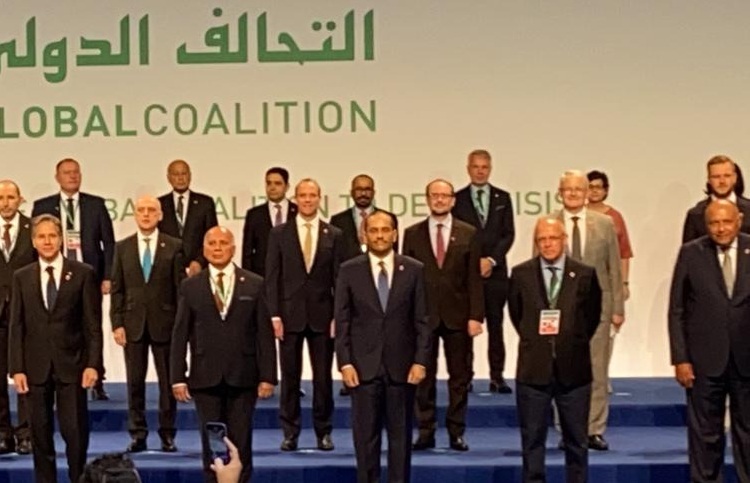Eduardo González
The Minister of Foreign Affairs, Arancha Gonzalez Laya, coincided yesterday in Rome, during the ministerial meeting of the Global Coalition against Daesh, with her Moroccan counterpart, Nasser Bourita, for the first time since the beginning of the diplomatic crisis between the two countries.
The presence of both ministers in the Italian capital comes in the midst of the very serious diplomatic crisis that Rabat and Madrid are going through due to the entry and hospitalization in Spain of the leader of the Polisario Front, Brahim Ghali, and Morocco’s subsequent response with an uncontrolled avalanche of immigrants across the border with Ceuta and with a whole series of public accusations against Spain. However, diplomatic sources consulted by The Diplomat did not confirm whether the minister held any meeting with Bourita or, at least, if there was any attempt to arrange one.
On the other hand, those who did meet were Bourita and the U.S. Secretary of State, Antony Blinken, according to official information from the governments of both countries. At this meeting, according to the Moroccan government, the two ministers discussed “regional issues, including the situations in Libya and the Middle East”. For its part, the State Department was more specific and reported that Nasser Bourita and Antony Blinken talked about “shared interests in regional peace and stability, human rights and freedom of the press”, according to Blinken’s Twitter account.
González Laya already had a first brief face-to-face meeting with Blinken last March 23 in Brussels, in the margins of the NATO foreign ministers’ meeting, and has had a couple of telephone conversations to date. In the last conversation, which took place on June 10, the Secretary of State conveyed to the Minister his commitment to migration that takes place through “regular channels” and in a “safe, orderly and humane” manner, according to information provided by the State Department.
These words were interpreted as a veiled criticism of Morocco’s attitude, following the massive influx of migrants in Ceuta. Washington tries to maintain a position that gives some support to an ally such as Spain, but without provoking discomfort in Morocco, a country it considers a key player in North Africa. That is why, to date, they have limited themselves to recommending that both countries “work together towards a resolution”. In any case, Joe Biden’s administration has not reversed the decision taken by former US President Donald Trump to recognize the Moroccan ownership of Western Sahara.
The minister will meet again today with Blinken on the occasion of the meeting of the G-20 of Foreign Affairs and Cooperation in the city of Matera (southern Italy), which will be chaired by his Italian counterpart Luigi Di Maio. In addition, the Minister held yesterday a bilateral meeting in Rome with the Deputy Prime Minister of Lebanon, Zeina Akar, as she herself reported through her Twitter account.







